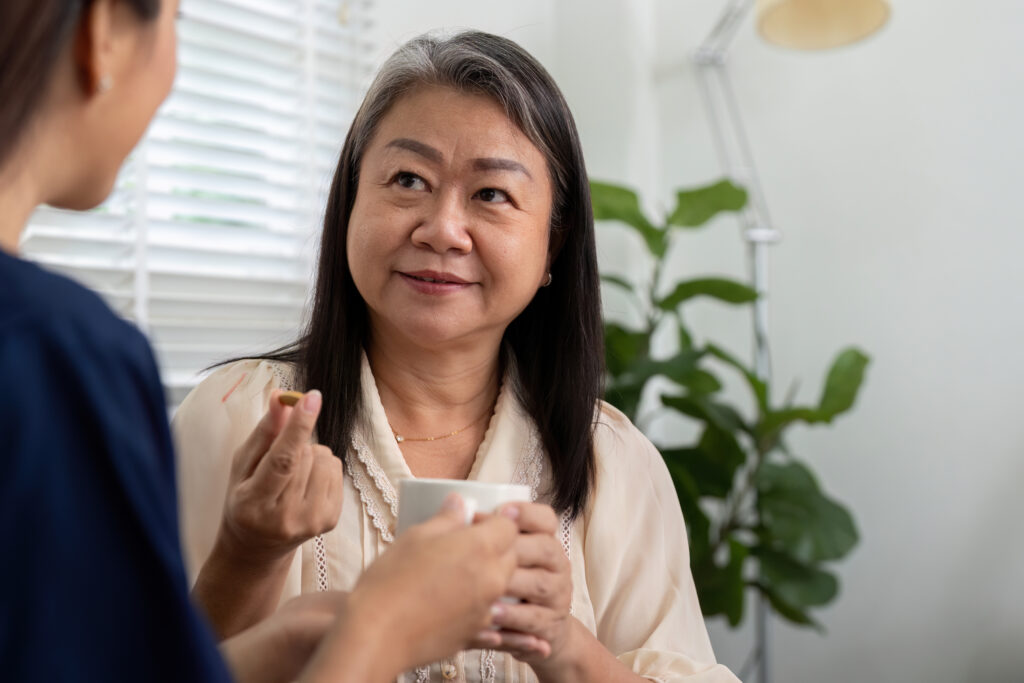My grandmother takes nine pills every day. Nine. I count them out with her every Sunday when I visit. She’s 82 and lives alone in the same house she’s been in for forty years. Up until last year, she managed everything fine on her own.
Then she had that bad fall and everything changed. Suddenly there were new medications on top of the ones she already took. Blood thinners, pain medication, something for her heart. The kitchen counter started looking like a pharmacy.
Two weeks ago I got a scary phone call. She’d taken her evening pills in the morning by mistake and felt terrible all day. She was too embarrassed to call anyone until she really felt sick. That’s when I knew we needed help.
I called my cousin Maria who lives in Trenton. Her mom went through the same thing a few years back. Maria told me there are people who help with medication stuff, but she couldn’t remember exactly what they were called or how much it cost. So I started making phone calls.

Let Us Help You With Your Medications In NJ
How Things Get Messed Up
Taking one pill is easy. Taking nine pills at different times with different rules is hard. My grandmother takes some with breakfast, some before lunch, some with dinner, some at bedtime. Two of them can’t be taken together. One has to be taken on an empty stomach.
She tried using one of those weekly pill containers with the little compartments. Worked for a while, but then she started forgetting which day it was or whether she’d already taken the morning pills. When you’re dealing with heart medication and blood thinners, making mistakes is really dangerous.
The bottles all look the same to her now. Small white pills, small blue pills, everything looks similar when your eyesight isn’t great. She mixed up her blood pressure pills with her cholesterol pills one morning. Luckily nothing bad happened, but it scared both of us.
Money is another problem. Some of these medications cost a lot even with Medicare. When she drops pills or takes extras by accident, it’s not just a health issue. It means maybe going without pills at the end of the month because insurance won’t pay for early refills.
Her arthritis makes opening the bottles really hard too. Sometimes she just skips pills because she can’t get the bottle open. Other times she asks me to open all of them when I visit, but then there are loose pills sitting around that could get mixed up.
What Usually Goes Wrong
Her doctor told me that forgetting whether you took your medication is the most common problem. My grandmother will stand in the kitchen holding a pill bottle wondering if she already took those pills or not. Taking too much is just as dangerous as taking too little.
Sometimes she feels better and thinks she doesn’t need the medication anymore. Or she feels worse and takes an extra pill thinking it will help faster. The doctor explained that medications work because you take them consistently, not because you change the dose when you feel different.
Reading the labels is getting harder for her. The print is tiny and when you have several bottles that look similar, it’s easy to grab the wrong one. She keeps a magnifying glass in the kitchen now, but she doesn’t always remember to use it.
What Help Is Available
I started by calling her pharmacy. They offered a few different services. The one that sounded most helpful was something called blister packaging. They put all her pills into individual packets labeled with the day and time. Costs about $12 a month but seems worth it.
They also do medication synchronization, which means they coordinate with her doctors so all her prescriptions are ready on the same day each month. This would save me from making multiple trips to pick up different medications.
Home health agencies offer more hands-on help. A nurse could come to her house to set up pill organizers and make sure she’s taking everything correctly. This costs more but might be necessary if the pharmacy services aren’t enough.
Her senior center has a pharmacist who comes in once a month to answer questions about medications. This is free and she could bring all her pill bottles to have someone review them for problems.
Pharmacy Help
The blister packaging seems like the best place to start. Instead of eight different pill bottles, she’d get packets that say exactly what to take and when. Each packet would have all the pills for that specific time, so there’s no guessing.
The pharmacist can also do medication reviews to check if any of her pills interact with each other or if she’s taking duplicates. This happened to my friend’s dad – two different doctors had prescribed similar medications without knowing about the other one.
Some pharmacies offer reminder calls, but I’m not sure my grandmother would like that. She doesn’t like getting phone calls from strangers and might find it annoying.




